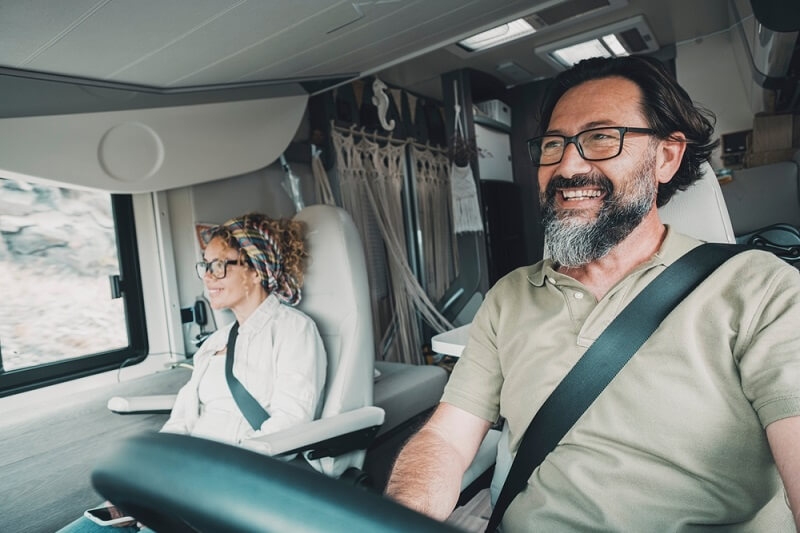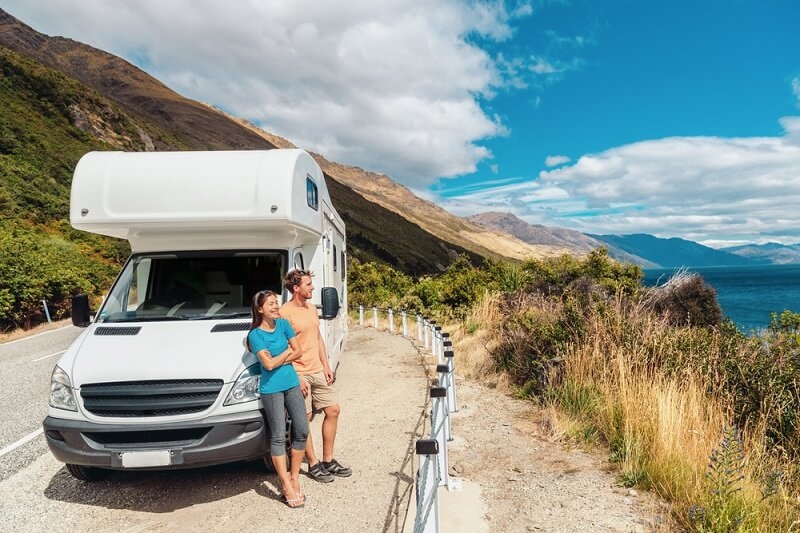
You’ve finally done it. You bought the RV. Maybe it’s a shiny new Class A motorhome or a humble-but-mighty travel trailer. Either way, you’re ready to hit the road, chase sunsets, and park beneath the stars.
But before you fire up the GPS and cruise into your next adventure, there’s one not-so-glamorous detail you really, really need to think about: vacation liability RV insurance.
Yes, liability insurance even when you’re parked. Because believe it or not, the moment your RV turns from vehicle to vacation spot, your risk shifts. And if you’re not covered properly? One campsite accident could turn your dream trip into a financial nightmare.
Let’s break it all down, minus the jargon and insurance-speak. This guide covers what it is, why it matters, and how it fits into your overall RV insurance game plan.
Think of it like this: your regular RV insurance kicks in when you're driving. But what about when your RV is parked at a campsite and becomes your temporary home? That’s where vacation liability RV insurance steps in.
It provides liability protection while your RV is not in motion—like when you’re using it at a campground, RV park, or other vacation site.
In other words, it covers you if someone gets injured in or around your stationary RV and you're legally responsible. Yes, even if your dog trips them, your awning collapses, or they trip on your portable grill setup. Accidents happen. And liability lawsuits? They’re no joke.
Most RV owners assume their standard policy has them covered for everything. Driving. Parking. Living. Relaxing. But the reality is—not always.
Your typical motorhome policy includes liability coverage while you’re driving on public roads. But once you park and start living in your RV—whether for a weekend or the whole season—it may no longer count as a vehicle in the eyes of your insurer.
This creates a liability gap.
And that’s where RRV vacation liability coverage comes in. It fills the gap and makes sure you’re protected while treating your RV like a home away from home.

Let’s say you’ve parked your RV at a lakeside campground for the week. Your awning is out, chairs are set, and your cooler’s stocked. A neighbor stops by to chat, slips on your outdoor mat, and breaks their ankle.
Without RRV personal liability insurance, you could be stuck paying for:
Essentially, this type of coverage is like having homeowner’s liability protection—for your parked RV.
Now let’s be clear—vacation liability RV insurance is liability coverage, not a substitute for full RV insurance. It won’t cover:
Also, it doesn’t cover accidents while the RV is in motion. For that, you’ll need standard liability and collision coverage.
If you've come across the term RRV campsite liability insurance, you might be wondering—“Isn’t that the same thing as vacation liability?”
Basically, yes.
“Campsite liability” is often just another name for vacation liability. Some insurers use different terminology, but the core idea remains the same: coverage for liability incidents that occur while your RV is parked at a campsite or vacation spot.
That said, always check the fine print. Some providers may offer slightly different features or limits depending on how they label the coverage.
Short answer? Almost every RV owner.
Long answer? It’s especially important if:
Even if you think, “Oh, I’m careful. Nothing will happen,” it’s worth asking: Would I be able to afford a $15,000 medical bill out of pocket if something did?
Most people wouldn’t. And honestly, no one wants to find out the hard way.
Worth A Look: Term Life or Whole Life Insurance: Which Suits Your Future
Here’s the tricky part.
With some insurers, vacation liability is included in certain RV policies. But with others, it’s an optional RRV insurance add-on liability. You won’t know unless you ask.
If it is included, there may still be a cap on how much it covers—or where it applies. For example, it might only apply at designated campsites and not on private land or boondocking spots.
And if it’s an add-on? Don’t ignore it just to save a few bucks. The cost is usually minimal—think $10 to $25 a year—but the protection it provides? Priceless if something goes wrong.
That depends on your risk tolerance and lifestyle.
Most vacation liability policies offer $10,000 to $500,000 in coverage. If you’re a weekend warrior who camps solo? The lower end might be fine.
But if you:
Then it makes sense to lean higher. Lawsuits can get expensive fast. And when you consider the minimal cost of adding higher liability limits, it’s a smart upgrade.
Here’s where some people get tripped up.
If you live in your RV year-round, most vacation liability policies won’t cut it. Why? Because they’re designed for temporary use—not full-time living.
If that’s you, ask your insurer about full-timer’s liability coverage. It functions more like homeowners insurance, covering you year-round wherever you’re parked.
Remember: liability coverage parked RV varies based on your usage. Be honest about how often you live in your RV to make sure you get the right policy.
If you're renting an RV for a vacation or letting a friend borrow yours, don't assume you're covered automatically.
Some rental agreements include basic liability, but it’s often limited. You might want to add a short-term RRV personal liability insurance rider to your existing policy just to be safe.
If you’re the one renting? Ask about vacation liability before you drive off the lot. Most rental companies will offer add-ons, and it’s worth a few extra bucks to cover yourself.
Want to make sure your RRV vacation liability coverage works for you if (and when) you need it?
Don't Miss This: Pet Insurance Plan Types Explained for Every Pet Parent
Look, RVing is about freedom, fun, and living on your own terms. But that doesn’t mean going unprotected.
Vacation liability RV insurance is one of those things that feels unnecessary—until it isn’t. And when it’s needed? It can be the one thing standing between a peaceful vacation and a legal headache.
So whether you’re full-time, part-time, or just RV-curious, take a minute to review your policy. Ask your provider if you’ve got the right RRV insurance add-on liability in place.
It’s a small step that could save you big in the long run.
Now go ahead—hitch up, head out, and enjoy the road. Just make sure your insurance is riding with you too.
This content was created by AI